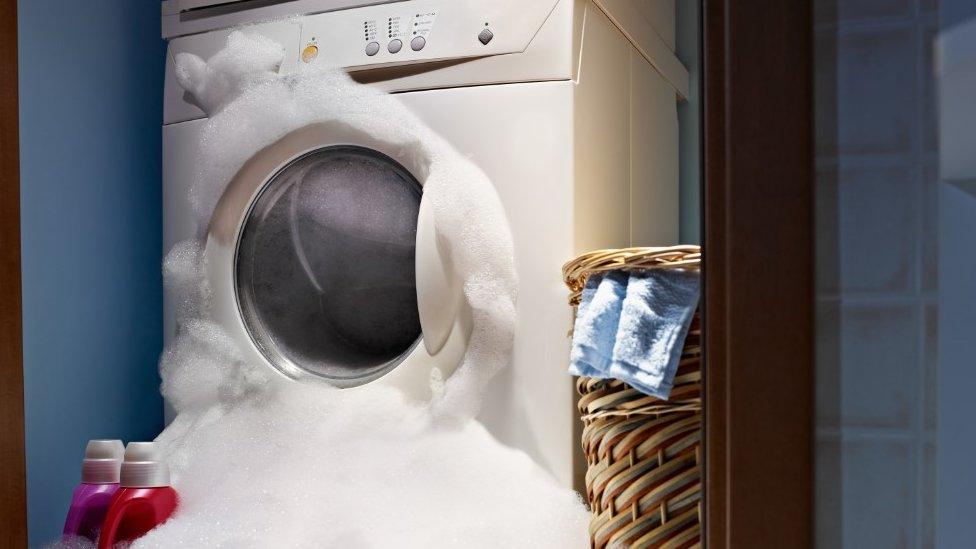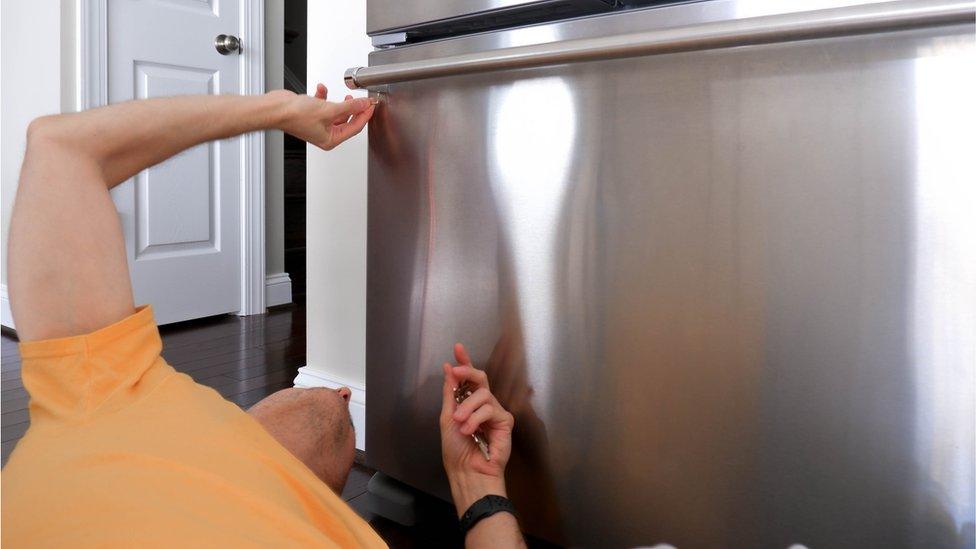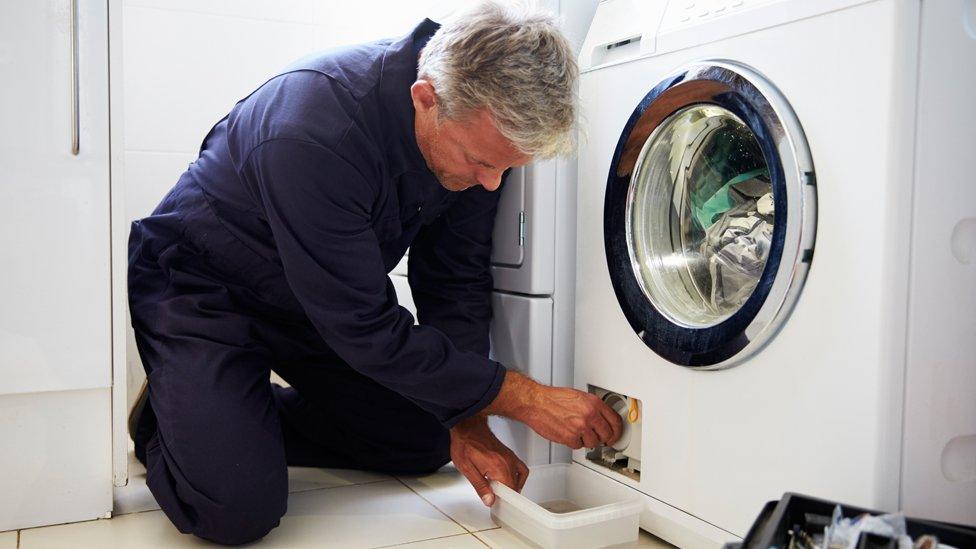'Right to repair' law to come in this summer
- Published
- comments

Appliances such as fridges, washing machines and TVs should last longer and be cheaper to run under new rules.
Ministers have confirmed that from the summer consumers will have a right to repair on goods they buy.
They are keeping a promise to implement EU rules aimed at cutting energy and bills – and reducing the need for new materials.
Many consumers have complained that goods don’t last long enough, then can’t be fixed in the home.
Manufacturers will be legally obliged to make spare parts for products available to consumers for the first time – a new legal right for repairs.
The aim of the new rules is to extend the lifespan of products by up to 10 years, and officials estimate that higher energy efficiency standards will save consumers an average of £75 a year on bills over their lifetimes.
'Protecting the environment'
The new rules will be estimated to reduce the 1.5 million tonnes of electrical waste said by the government to be generated in the UK each year and to contribute to reducing carbon emissions overall.
Business and Energy Secretary Kwasi Kwarteng said: "Our plans to tighten product standards will ensure more electrical goods can be fixed rather than thrown on the scrap heap - putting more money back in the pockets of consumers whilst protecting the environment.
"Our upcoming energy efficiency framework will push electrical products to use even less energy and material resources, saving people money on their bills and reducing carbon emissions."
The issue has been promoted by the Commons Environmental Audit Committee. Its chairman, Philip Dunne MP told BBC News: “Cracking down on planned obsolescence in electrical items is key to tackling the e-waste tsunami.

“We must stop using and disposing quite so much: we must take action if we are to protect the environment for generations to come.”
The think tank Green Alliance has also pushed for a right to repair. Its spokeswoman Libby Peake told BBC News: “This is good news – but it’s exactly what the government said it would do on leaving the EU.
“The big test is whether the UK will continue to keep track with future EU standards.”
Simpler energy labels
New energy labels have also been introduced this month to raise the bar because most products are classed as A+, A++ or A+++ thanks to energy efficiency standards introduced by the EU.
The simplified system is based on an A-G scale, with a higher standard for each grade so that very few appliances will now make it into the top A group.
Emilie Carmichael from the Energy Saving Trust said: "Simplifying the way energy efficiency is displayed on labels will help consumers to make more informed choices to reduce their energy consumption and bills."
The new regulations should come into force in the summer. They reflect what was agreed by the UK and the EU member states two years ago.
They will apply in Great Britain, while EU rules will continue to apply in Northern Ireland.
Follow Roger on Twitter @rharrabin
- Published1 October 2019

- Published9 January 2019
